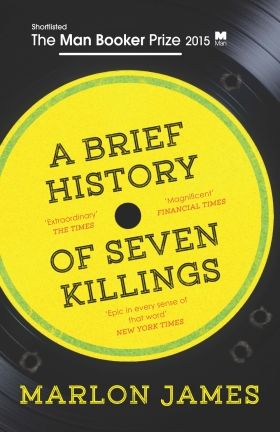
Marlon James is the first Jamaican to be awarded the Man Booker Prize. His winning novel, A Brief History of Seven Killings, is a blistering crime story that centres on a failed attempt to assassinate Bob Marley in Jamaica in 1976. Narrated by multiple characters, ranging from a psychopathic local gangster to an American journalist investigating the attack, A Brief History never allows the reader to settle into a fixed point of view. But what it loses in coherence it gains in addictive energy: this is the most linguistically experimental novelist to win the Booker since James Kelman in 1994. The language might be earthy but still echoes the formal English from the colonial era. Papa-Lo, the gang leader who plans Marley’s killing, says we shouldn’t blame him. “Listen to me now. Me warn him y’know, my magnanimous gentlemens.” The gangster Bam-Bam, traumatised by a terrible childhood, sums up his life sharply: “And ghetto life don’t mean nothing. Is nothing to kill a boy.”
In a novel that puts you in the minds of so many aggressively masculine characters, one voice stands out. When Nina is picked up by two policeman late at night, she is convinced she is going to be raped. The evocation of her thoughts is one of the most terrifying pieces of writing in the book. Echoing the novels of James Ellroy, A Brief History is an unsparing analysis of the corruption and violence at the heart of Seventies Jamaica. There is little saving humanity present in James’s portrayal of his nation; but as he said during his Booker acceptance speech, he feels it his responsibility not to sugar-coat his country’s past. But his novel is far from gruelling—if anything, it’s guiltily exhilarating.











